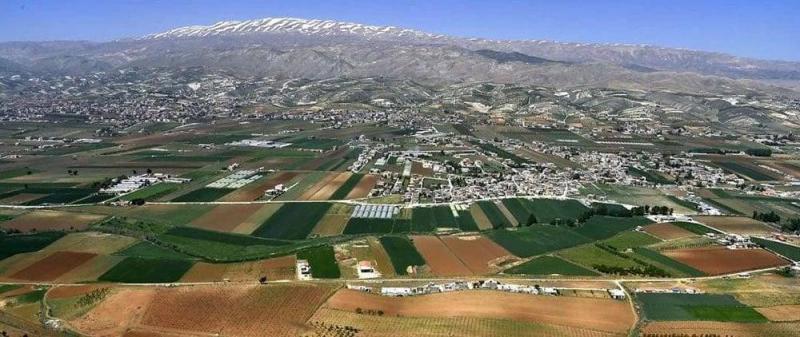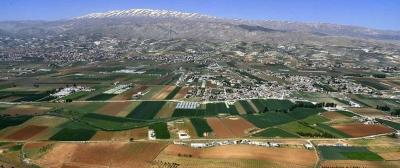The Western Bekaa-Rachaya district is witnessing some of the most intense electoral battles, as the competition unfolds within a single list. This applies particularly to the list of the "March 8" alliance, which includes the Amal Movement and the Free Patriotic Movement. The conflict is particularly prominent between Deputy Speaker Eli Franjieh, aligned with Parliament Speaker Nabih Berri, and the Maronite candidate supported by Representative Gebran Bassil. This situation creates a dilemma for Hezbollah, which is positioned midway between its ally Berri and its partner in the understanding paper, Bassil, who views his electoral alliances as primarily a matter of merging votes.
The electoral clash in Western Bekaa extends to the previously unified "March 14" forces. However, they are now divided into two lists: the first includes Representative Mohammad al-Qaraawi, who is part of the political Hariri movement, Progressive Socialist Party representative Walid Jumblatt, and independent candidates such as Orthodox candidate Ghassan Skaff, Maronite Jihad al-Zarzour, Shiite Abbas Aidi, and Sunni candidate Ali Abu Yasin from the Islamic Group. The list supported by the Lebanese Forces is incomplete and includes Maronite candidate Dani Khater, Orthodox George Aboud, and Shiite Ghinwa Asaad, after Sunni candidate Khaled Askar withdrew from it.
Attempts to reconcile the electoral divide between these two lists, which include candidates from the former "March 14" forces, have failed. Negotiations conducted over several rounds resulted in their division into two lists: one fully headed by Al-Qaraawi and the other incomplete due to the absence of a Druze and a second Sunni candidate. They have chosen to enter the electoral competition, marking a significant departure with the Progressive Socialist Party distancing itself from its alliance with the Lebanese Forces, contrary to their collaboration in other districts, particularly in Mount Lebanon.
Both teams blame each other, with one side shifting responsibility onto the other, which has hindered the positioning of the former "March 14" forces into a united list against the "March 8" alliance, the Amal Movement, and the Free Patriotic Movement, among others. This includes figures such as Mourad, Franjieh, Maroun Qabbalan, and Tariq Daoud, the Druze candidate and heir to his late brother, former representative Faisal Daoud. The second Sunni seat is intentionally left vacant at Mourad's request, in addition to lists supported by the civil movement, notably the "Sahlna wa al-Jabal" list.
The Lebanese Forces insist on fighting this battle not to prove their presence in Western Bekaa, as their sources indicate, but because they believe they have a chance to elect their Maronite candidate Khater by securing the necessary electoral threshold for his victory, contrary to the opinions of their allies in the competing list who assert, according to their sources, that there is an overestimation of their ally, the Lebanese Forces, regarding their electoral size. They argue that excluding Khater from the list is necessary to consider the prevailing mood among the political Hariri constituency, which is not keen on cooperating with the Lebanese Forces, who in turn bear responsibility for sidelining the representative Al-Qaraawi.
As for the conflict between Berri and Bassil, despite their candidates being on the same list, the ongoing battle between them on the Jezzine-Sidon axis has made it difficult for Hezbollah to unify its two allies onto a single list. Bassil was the first to launch indirect attacks on Franjieh without naming him, despite being well aware of Franjieh's close alliance with the Parliament Speaker.
Bassil did not hesitate to launch a veiled attack on Franjieh, labeling him a sycophant and an ingrate, which prompted Franjieh to respond in his own way. Bassil arguably did not need to initiate a side battle in Franjieh's own territory in Western Bekaa, especially since sources linked to Mourad's list had advised him to postpone his visit to the region and avoid timing it with Eid al-Fitr, given that his presence would be provocative to a significant majority in this district, particularly the Sunni street, which holds considerable electoral weight.
There's speculation that Bassil draws strength from Mourad in his indirect assault on Franjieh due to their lack of political chemistry, although he has succumbed to "Amal's" conditions that tied their alliance with Mourad to including Franjieh on the list. "Amal" had opposed including Bassil's candidate, but President Berri, accommodating his ally Hezbollah, agreed to include him in response to the request of Secretary-General Hassan Nasrallah, after Bassil had entrusted him with his affairs and asked for intervention.
Thus, Bassil's attack on Franjieh is a different manifestation of his disagreement with Berri, which creates a dilemma for Hezbollah, having to choose between its two rival allies. According to its sources, Hezbollah hopes Bassil would remain silent rather than engaging in side battles that could have politically negative repercussions within their unified house.
Hezbollah, given its strategic alliance with Berri, is compelled to support the "Amal" candidate in electoral districts where the party does not have a candidate. This requires it to refrain from transferring votes to Bassil's candidate, especially since the confrontation has shifted from Franjieh's clash with Bassil to an open war between Bassil and President Berri.
Bassil is striving to wage a political war of eradication against Franjieh, although he understands the consequences of his rebellion against President Michel Aoun and his exit from his parliamentary bloc. He is already positioning himself to retaliate against Franjieh, hoping to eliminate his path back to Parliament, thereby paving the way for the election of deputy Elias Bou Saab, should he become deputy speaker of Parliament. Despite knowing that his plan will likely fail, he understands very well the importance of Franjieh to Berri!
The electoral scene in Western Bekaa is distinct from other districts due to the numerous rivalries and the involvement of members of the same house in "wars" not limited to securing preferential votes alone, but aimed at eliminating one ally in favor of another within the same list, as seen with the "resistance" axis represented by Mourad's list or the distribution of allies across two lists, leading to the depletion of what remains of the former "March 14" forces.
- Muhammad Shuqair, Asharq Al-Awsat




